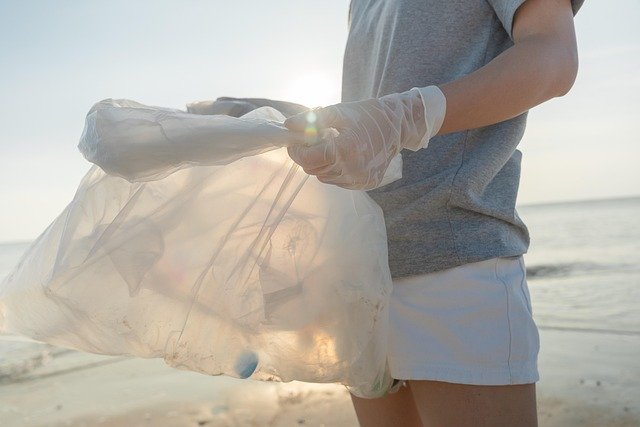Beach Cleanup Volunteer Work: Groups, Benefits, and Community Impact
Beach cleanup volunteering offers a meaningful way to care for coastal environments and local communities. Participants help remove litter and protect wildlife, while contributing to cleaner, safer beaches, fostering a sense of shared responsibility for the natural surroundings.

Coastal environments face increasing pressure from pollution, plastic waste, and human activity. Beach cleanup volunteering has emerged as a powerful grassroots response to these environmental challenges, mobilizing communities to take direct action in protecting marine ecosystems. These volunteer efforts not only remove harmful debris from shorelines but also raise awareness about ocean conservation and inspire long-term behavioral changes.
Beach Cleanup Volunteer Groups and Organizations
Numerous organizations coordinate beach cleanup efforts across the United States, ranging from international nonprofits to local community groups. Ocean Conservancy leads the International Coastal Cleanup, one of the world’s largest volunteer efforts for ocean health, engaging millions of volunteers annually. Surfrider Foundation operates through local chapters, organizing regular beach cleanups while advocating for coastal protection policies.
Local environmental groups, schools, and community organizations frequently organize smaller-scale cleanups tailored to specific beaches or regions. These grassroots efforts often provide more intimate settings for volunteers to connect with their immediate coastal communities. Many state parks and recreation departments also coordinate regular volunteer cleanup events, integrating environmental stewardship with public land management.
Corporate volunteer programs increasingly include beach cleanup activities as team-building exercises that contribute to environmental goals. These partnerships between businesses and environmental organizations expand volunteer participation while providing additional resources for cleanup efforts.
Community Beach Cleanup Volunteering
Community-based beach cleanup volunteering creates opportunities for neighbors to work together toward shared environmental goals. These local initiatives often develop from concerned residents who notice pollution problems on nearby beaches and decide to take action. Community cleanups typically occur on weekends or during special environmental awareness events, making participation accessible for working families.
Local cleanup events frequently incorporate educational components, teaching volunteers about marine debris sources, recycling practices, and pollution prevention strategies. Many communities establish ongoing cleanup schedules, creating regular opportunities for sustained volunteer engagement throughout the year.
School groups, scout troops, and youth organizations commonly participate in community beach cleanups as service learning projects. These experiences introduce young people to environmental stewardship while fulfilling community service requirements for graduation or organizational advancement.
Social media and community bulletin boards help coordinate volunteer participation, with organizers sharing cleanup locations, timing, and necessary supplies. Many community cleanups provide gloves, trash bags, and data collection sheets, requiring minimal preparation from individual volunteers.
Benefits of Beach Cleanup Volunteering
Beach cleanup volunteering delivers multiple benefits extending beyond immediate environmental impact. Participants experience direct connection with nature while contributing to ecosystem health through tangible debris removal. These activities provide physical exercise in outdoor settings, combining environmental action with personal wellness benefits.
Volunteers develop increased awareness of consumption patterns and waste generation through hands-on experience with marine debris. This heightened environmental consciousness often translates into lifestyle changes, including reduced plastic use, improved recycling habits, and support for environmental policies.
Social benefits include meeting like-minded community members and building relationships around shared values. Many volunteers report increased sense of civic engagement and community connection through regular participation in cleanup activities. These social networks often extend beyond environmental activities, strengthening overall community bonds.
Educational benefits emerge through direct observation of pollution sources, marine ecosystem interactions, and conservation challenges. Volunteers gain practical knowledge about environmental issues while developing problem-solving skills applicable to broader sustainability challenges.
Mental health benefits include stress reduction, sense of purpose, and satisfaction from meaningful contribution to environmental protection. Many participants describe beach cleanup volunteering as meditative or therapeutic, providing mental breaks from daily routines while accomplishing important conservation work.
| Organization Type | Services Offered | Key Features |
|---|---|---|
| Ocean Conservancy | International Coastal Cleanup coordination | Global data collection, annual events |
| Surfrider Foundation | Local chapter cleanups | Ongoing advocacy, community focus |
| Local Environmental Groups | Regular beach maintenance | Neighborhood connections, flexible scheduling |
| State Parks Departments | Organized volunteer programs | Professional coordination, equipment provided |
| Corporate Programs | Team-building cleanups | Large group capacity, resource support |
Participation in beach cleanup volunteering requires minimal barriers to entry, with most organizations welcoming volunteers regardless of experience level. Regular participants often assume leadership roles, coordinating logistics, training new volunteers, and maintaining relationships with local environmental agencies. These volunteer leadership opportunities develop organizational skills while deepening community engagement.
Data collection during cleanup events contributes to scientific research on marine debris patterns, pollution sources, and conservation effectiveness. Volunteers participate in citizen science by recording debris types, quantities, and locations, supporting research that informs policy decisions and conservation strategies.
Beach cleanup volunteering represents accessible environmental action that creates immediate visible results while building long-term community capacity for coastal conservation. These volunteer efforts demonstrate how individual actions, when coordinated through organized groups, can address complex environmental challenges while strengthening community connections and environmental awareness.




